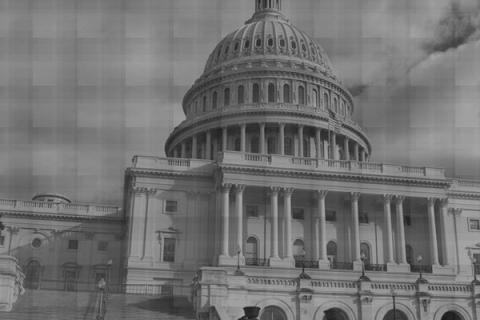What happened to the anti-war movement that thrived under George W. Bush? Obama got elected. That's what really ended the anti-war movement, which at its peak brought millions into the streets worldwide in opposition to the Iraq War.
The protests had been getting smaller, as more realized that the powers-that-be were simply ignoring them. But once Obama got elected, the movement really fizzled. Sad to say, but the truth is many of the protesters, as it turned out, were much more anti-Bush than they were anti-war. Once their side got back in power, the wars and Guantanamo Bay suddenly became much more palatable to many former protesters.
This, too often, is how our politics of confrontation operate. If the other side is doing it, it is bad. If our side does it, then it must be good. Yet Bush and Obama have near identical policies on war, detention, and government intrusion into civil liberties. If the TSA had instituted their grope-and-scan policies while Bush was in office, liberals would have been howling. As it was, the most vocal protest came from factions of the Tea Party.
The left did make some serious tactical blunders, which were compounded by ideological blinders. Some prominent antiwar coalitions were controlled by far left groups whose primary purpose was to use the front group to recruit for their micro-party. But you can't build a genuine, mass antiwar organization that way, because your motives and actions will always be at cross purposes.
On the right, Congressman Ron Paul, the original Tea Party father, has long been the most vocal critic of the wars. Other conservatives, like Grover Norquist, and a few in the Tea Party are becoming more vocal in opposition to the wars, especially considering their staggering cost in an era of gaping budget deficits. But, as the libertarian Antiwar.com points out, many newly elected members of Congress with Tea Party ties are already starting to lose their anti-war zeal as they get courted by the Pentagon, lobbyists, and the hawkish wing of their party.
Tell me, what is it that happens to people when they get elected and go to D.C.? Do they get turned into pod creatures, controlled by entities the rest of us can't see? So it seems sometimes.
The left, even if it wants to, can't stop the wars on its own. Neither can the right. But together, maybe we can. Vocal anti-war sentiment is now coming from the edges of the left and the right. Polls clearly show this is hardly a fringe position, as the vast majority of the American public now opposes the Afghanistan war. The problem is that D.C. is still ignoring what the public wants.
Anti-war forces on all sides of the political spectrum should consider joining together in opposition to the wars. They don't have to agree on everything (and almost certainly will not!) But in a real coalition, the various members agree to forget their differences and focus on a common goal. A real mass movement is people from the left, right, and center working together to accomplish something. That's the way to end the wars.

